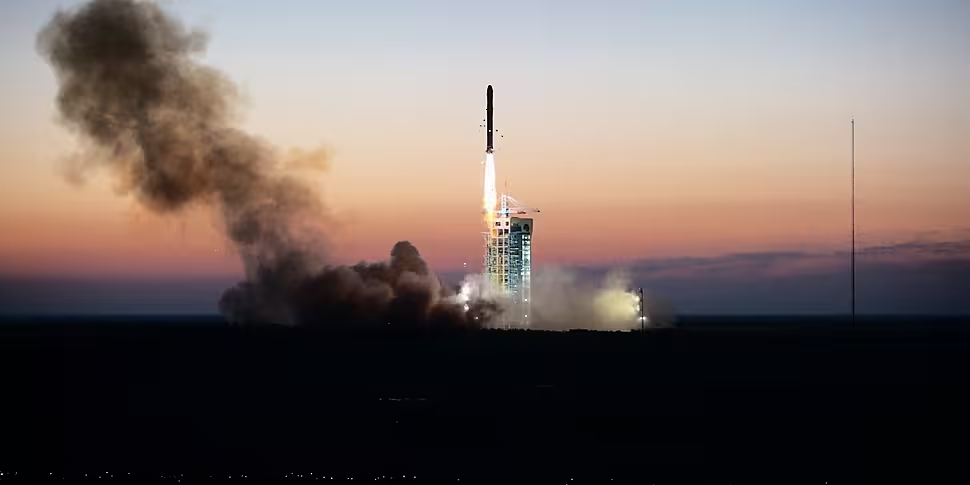Remnants from a 20-tonne rocket that was recently launched into space by China is set to crash back to Earth shortly.
The Long March 5B rocket was launched on April 29th from Wenchang Space Launch Centre.
The spacecraft was carrying Tianhe, the first module of China's future space station, into orbit.
The rocket's stage is now set to make an uncontrolled free-fall towards Earth, with its landing destination unknown.
It is hoped that the rocket, expected to land sometime around 2.30am Irish time on Sunday, will have been largely burned up after it passes through the Earth's atmosphere.
Space commentator Leo Enright told Newstalk Breakfast with Susan Keogh that although Ireland is safe, the space junk could land somewhere in southern Europe.
"This is a rocket stage about the height of an eight-storey building weighing over 20 tonnes that was lofted into space by the Chinese a couple of weeks ago to put into orbit their new space station," he explained.
"This rocket stage is now a piece of junk spinning around the Earth at seven kilometres a second and is going to crash to Earth sometime tonight or early Sunday morning."
⚠️Update: the re-entry window of object CZ-5B R/B has narrowed down to 2021-05-09 02:11 UTC ±190 min. #EUSST keep monitoring the event. Stay tuned! Read more: https://t.co/HN9rJNhEO1 #Tianhe pic.twitter.com/w4GzRlIDbO
— EUSST (@EU_SST) May 8, 2021
Mr Enright stated it is easier to predict where the debris isn't going to land, rather than anticipate which location it will hit on Earth.
"We know that most of Europe, including Ireland, is entirely safe because of the angle of the orbit of this thing, it's not going to hit anywhere near Ireland," he said.
"Parts of North America, Canada for instance, parts of the northwest United States, most of southern Africa are all safe.
"But the rest of the Earth, the populated areas of South America, North Africa, Asia, India, Australia and importantly, southern Europe, are still in the frame potentially for this thing to fall onto the ground."
There has been a "great deal of unhappiness" from many nations around the world over China's move to let the rocket fall uncontrolled, he added.
All blue and yellow lines are a single overlapping line representing the ground path below the elliptical orbit of the #LongMarch5B rocket body. Here is a handy guide explaining the graph, with a link to a Q+A with one of our debris experts: https://t.co/UYhpPwTSOl
— The Aerospace Corporation (@AerospaceCorp) May 7, 2021
"There is an understanding internationally that if you put something up into space, you must take responsibility to ensure it comes back in some sort of controlled manner," Mr Enright said.
"Generally what people do is they aim their rocket engines so that whatever falls down falls into the Pacific Ocean entirely harmlessly.
"The Chinese have not done this with this rocket stage, it's a particularly large object, one of the largest ever to fall uncontrolled onto the Earth.
"The last time they launched one of these almost a year ago, it fell onto a little village in the Ivory Coast in southwest Africa so they really need to get their act together, it is disturbing."
The rocket is expected to land somewhere on Earth in the early hours of tomorrow morning, with around 2.30am the midpoint time estimated by European Space Surveillance Network.
"They are particularly worried about Spain, Portugal, Sardinia, parts of Italy and parts of northern Greece," Mr Enright added.









